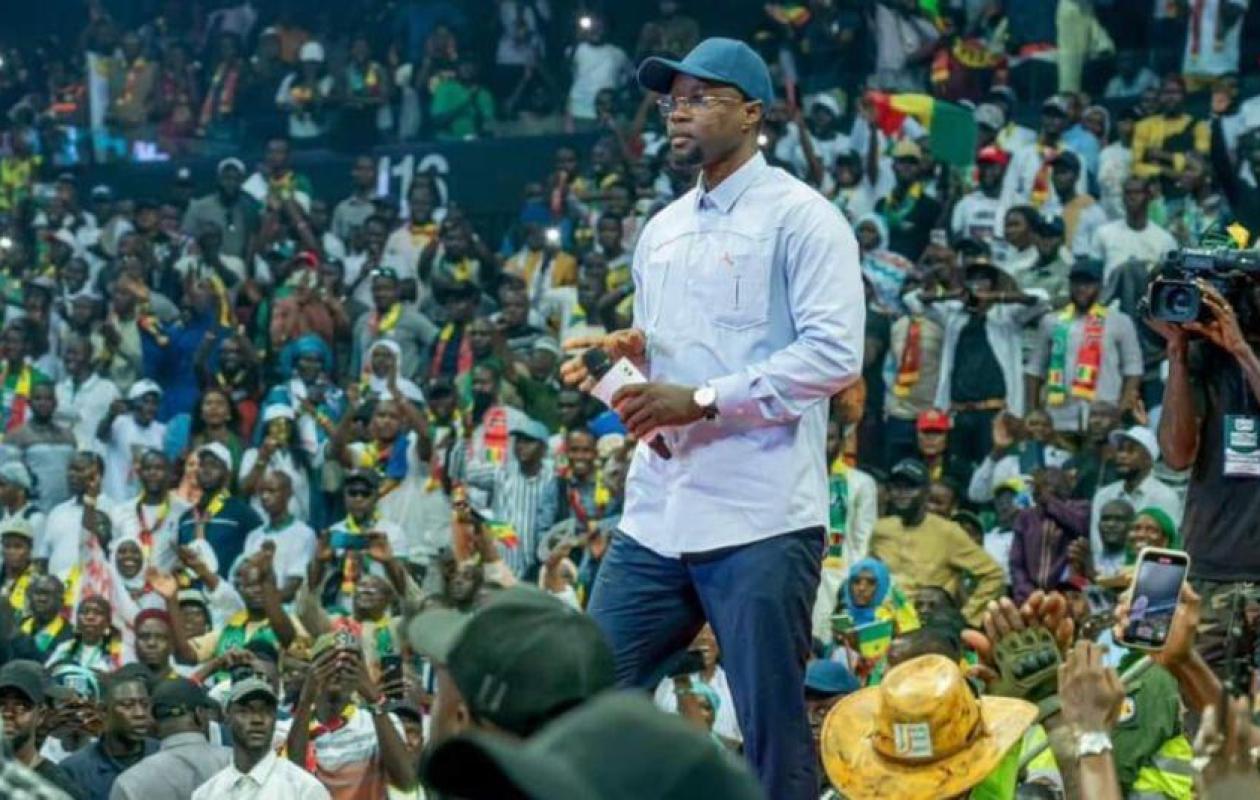
MA LECTURE DU 8 : Le bras de fer silencieux (Par Sidy Diop)
Ousmane Sonko spoke, and the country held its breath. This Saturday, November 8th, the parking lot of the Léopold Sédar Senghor stadium was transformed into a political cauldron. Thousands of supporters were packed together, their eyes burning with fervor, their throats tight with anticipation. The leader of Pastef returned to his oratorical style. Accountability, justice for the martyrs, moral overhaul of the government: the familiar refrains, chanted like mantras. But behind the music of his words, a more subtle, almost dissonant melody crept in.
Sonko didn't just speak to the people. He also spoke to his comrade-in-arms, now president, Bassirou Diomaye Faye. And, in this coded language where every word carries strategic weight, the message was clear. Yesterday, the orator didn't just galvanize his base. He redefined the contours of power.
Because Sonko has never been one to fade into the background. In politics, he applies Machiavelli's maxim: "It is safer to be feared than loved, if one cannot be both." The Pastef leader reminded everyone, without explicitly saying so, that the electoral power belongs to him, that the spirit of victory still bears his imprint. Implicitly, this is a clarification: the presidency belongs to Diomaye, but popular legitimacy remains in the hands of the founder.
This simmering tension between two former friends, two brothers in arms, is reminiscent of classic power struggles. In any revolution, brotherhood is eroded by the harsh realities of the situation. Behind the smiles, the fight for meaning begins. Pastef no longer intends to be an appendage of the government, but to become its very foundation. The "Diomaye for President" coalition is destined to disappear, giving way to a movement centered on Sonkist ideology. And no one is fooled: the pressure is mounting on the head of state.
The image is powerful. Diomaye, the legitimate president, is now besieged by an all-consuming expectation. Sonko, the shadowy general, brandishes the banner of the betrayed people. The words spoken at the rally sound like fervent warnings. "The break will not come from me," he hinted. A way of saying: "If the alliance breaks, it won't be his fault."
History is replete with examples of political partnerships where one seizes power and the other inspires it. But this inspiration can become control. De Gaulle warned: "Nothing great is achieved without great men, but they are great because they willed it." Diomaye, in his own way, seeks to embody peaceful continuity, rigor without vindictiveness. He governs in silence, preferring actions to words. Sonko, on the other hand, believes in the power of speech, in the flame that rouses the masses. Two styles, two legitimacies, two temporalities of power.
November 8th was therefore more than just a return to the podium. It was a test of authority. Between the two men, an invisible dividing line was emerging. Sonko claimed loyalty to a project, Diomaye to the state. One spoke to the people, the other to the Republic. One wanted to maintain control, the other wanted to hold the reins.
Ultimately, Sonko is trying to remind everyone that he didn't relinquish power only to see it diluted by administrative routines. He wants the promised revolution to remain alive, even within the inner workings of the presidential palace. But governing means betraying one's dreams to some extent, translating them into the language of constraints. And that's where everything hinges, in the gap between militant fervor and institutional slowness.
The images of that evening will remain etched in our memories: raised fists, tricolor flags, a sea of people, a cascade of slogans. A rally like a backlash. But also like a silent threat. Because if the Pastef supporters feel abandoned, they could quickly become an opposition force once again. The president is therefore walking a tightrope between loyalty and independence.
The break, says Sonko, will not come from him. A clever way of shifting the blame elsewhere, of lighting the fuse while maintaining the air of a wise man. But in reality, the power struggle has begun. Diomaye will have to choose: align himself with his mentor's leadership, or assert an independent presidency, even at the risk of losing part of his base. In either case, the tension promises to last.
The people, always invoked, see these two faces of power observing each other like inverted mirrors. One reflects passion, the other reason. And both know they cannot deny themselves without losing themselves. Senegal is entering a turbulent period where words can once again become weapons, and where promises of change risk, once again, shattering against the bedrock of power.
As fervor turns to impatience, Sonko keeps the floor, Diomaye keeps the charge. History will reveal the name of the one who will write the next chapter.
By Sidy Diop, journalist and writer
Commentaires (10)
Mais hélas Sonko révélateur de détournements de derniers publiques qu'à t'il apporter aux sénégalais ? Vous vous trouverez la réponse fait moi signe !
Pape Allé Niang n'était pas vraiment un militant du PASTEF mais un défenseur de la justice et un combattant de l'injustice ! 🙏
Je n’ai pas encore lu la contribution de Sidy Diop, je le ferai plus tard. Tu comprends mal Machiavel. Tu as supprimé un élément essentiel de la citation de Rousseau, ce qui en change complètement le sens. Rousseau dit de Machiavel : "EN FEIGNANT de donner des leçons aux rois, il en a donné de grandes aux peuples2, et plus loin, il ajoute : 2Le Prince de Machiavel est le livre des Républicains" (pas le livre des tyrans).
Participer à la Discussion
Règles de la communauté :
💡 Astuce : Utilisez des emojis depuis votre téléphone ou le module emoji ci-dessous. Cliquez sur GIF pour ajouter un GIF animé. Collez un lien X/Twitter, TikTok ou Instagram pour l'afficher automatiquement.